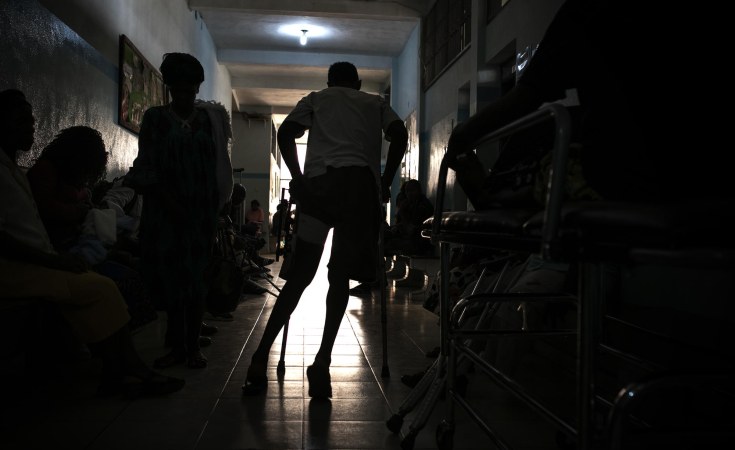Yaounde — Cameroonian health workers and people with HIV marched for World AIDS Day on December 1, calling for access to treatment for patients in conflict areas.
About half a million Cameroonians have HIV, and at least 1,000 live in troubled western regions and the border with Nigeria. The protesters urged Cameroon's military, separatists, and militants to allow all HIV patients access to needed treatment.
Marie Chantal Awoulbe, who belongs to the Cameroon Network of Adolescents and Positive Youths, which encourages those with AIDS to get regular treatment, took part in the protest and World AIDS Day activities at Chantal Biya International Research Centre in Yaounde. The center carries out research on AIDS, and supports programs to treat and support vulnerable people with HIV.
Awoulbe said her network is asking both armed groups and government troops to stop deaths among people with AIDS where there are armed conflicts by allowing the patients access to regular treatment.
Cameroon's public health ministry says similar protests and activities to encourage free screening took place in 70 hospitals, with at least 30 hospital workers and people with AIDS taking part at each of the hospitals.
The Cameroon government accuses separatists in the country's west of attacking hospitals and abducting health care workers. Activists also accuse government troops of attacking and arresting hospital staff suspected of treating civilians the military believes are either fighters or sympathize with separatists.
In April, medical aid group Doctors Without Borders suspended work in Cameroon's troubled Southwest region to protest the rearrest of four of its staff members. Authorities accused the staffers of cooperating with regional separatists, but the organization denied it.
Medical staff members say intimidation and abduction of health workers, and ceaseless battles between government troops and separatist fighters make it impossible for medical supplies to reach the troubled English-speaking regions.
Twenty-eight-year-old Betrand Lemfon said he and several dozen people with AIDS moved from Jakiri, an English-speaking northwestern town, to Bafoussam, a French-speaking commercial city. He said he and others with the disease were afraid of dying in Jakiri because they did not have access to regular treatment.
"There are a lot of persons out there who are in need of medications, so if we could have the opportunity and chance for medications to always reach every interior part of the North-West region, South-West region who are hit by the crisis, it will help the adolescents, young persons and children living with HIV to take their ARVs [antiretroviral medicines] and stay healthy," he said.
Lemfon spoke via the messaging app WhatsApp from Bafoussam.
Cameroon's military says it will protect all health workers and civilians in the troubled regions.
The government says the number of people with the disease in Cameroon has decreased from about 970,000 in 2010 to 500,000 in 2021.
Health officials say the decline is due to increasing awareness of the disease and its consequences. The government says sexual behavior is changing, with the number of people using condoms or abstaining from sex increasing.
Honorine Tatah, a government official in charge of AIDS control in Cameroon, said unlike in 2020 when there was resistance due to lack of awareness, many more civilians now accept systematic screening for HIV.
"During antenatal care, a woman is screened for a number of diseases including hepatitis B, HIV and if you are tested positive, you are eligible for treatment and that treatment will reduce the chances of a child getting infected with HIV. The treatment is free of charge," Tatah said.
World AIDS Day was the first international day for global health, starting in 1988. It allows people all over the world to join in the battle against HIV, to support those with HIV, and to remember those who have died from an AIDS-related illness.


